Standing with humanity in Israel and the Occupied Palestinian Territories
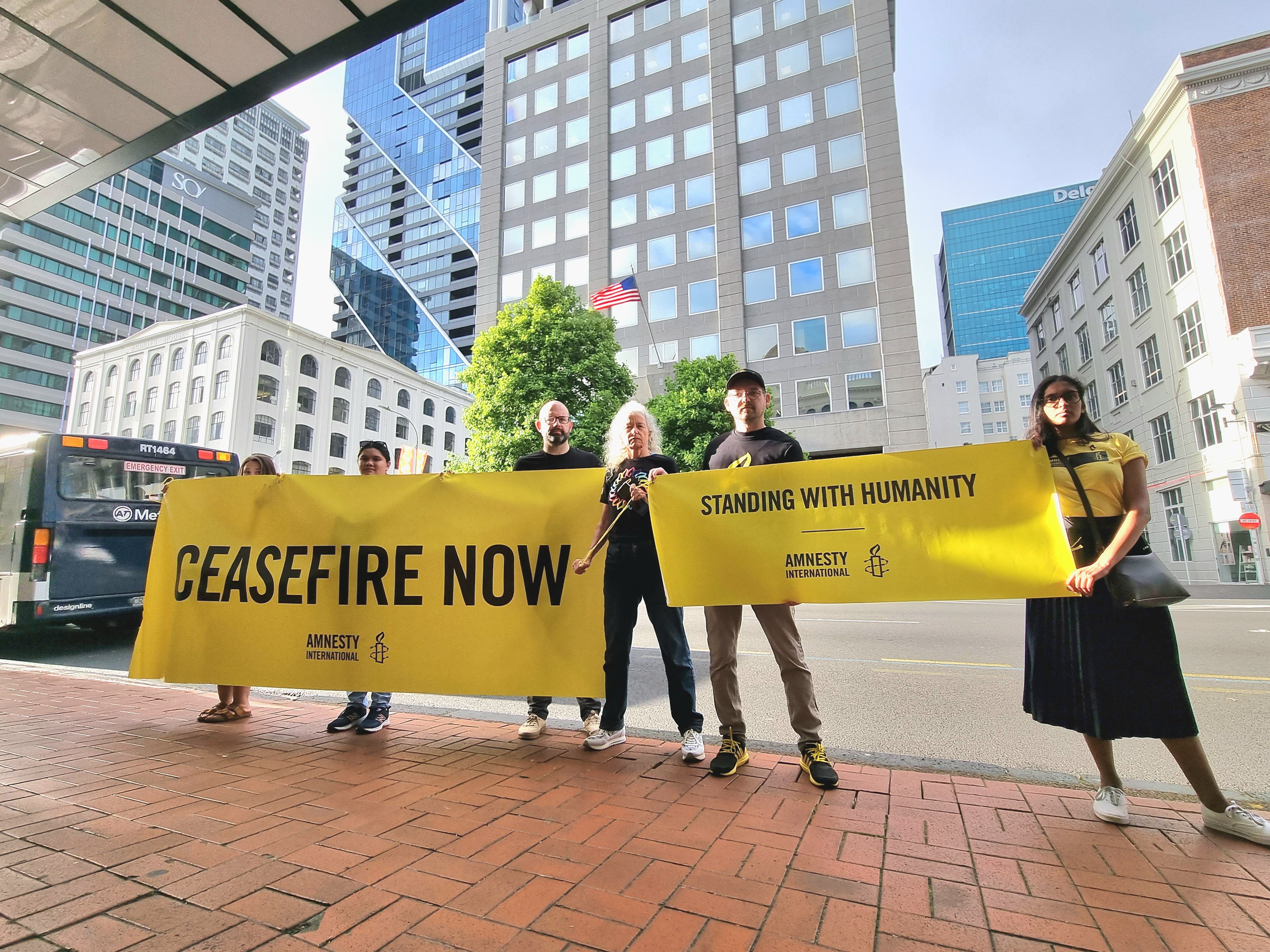
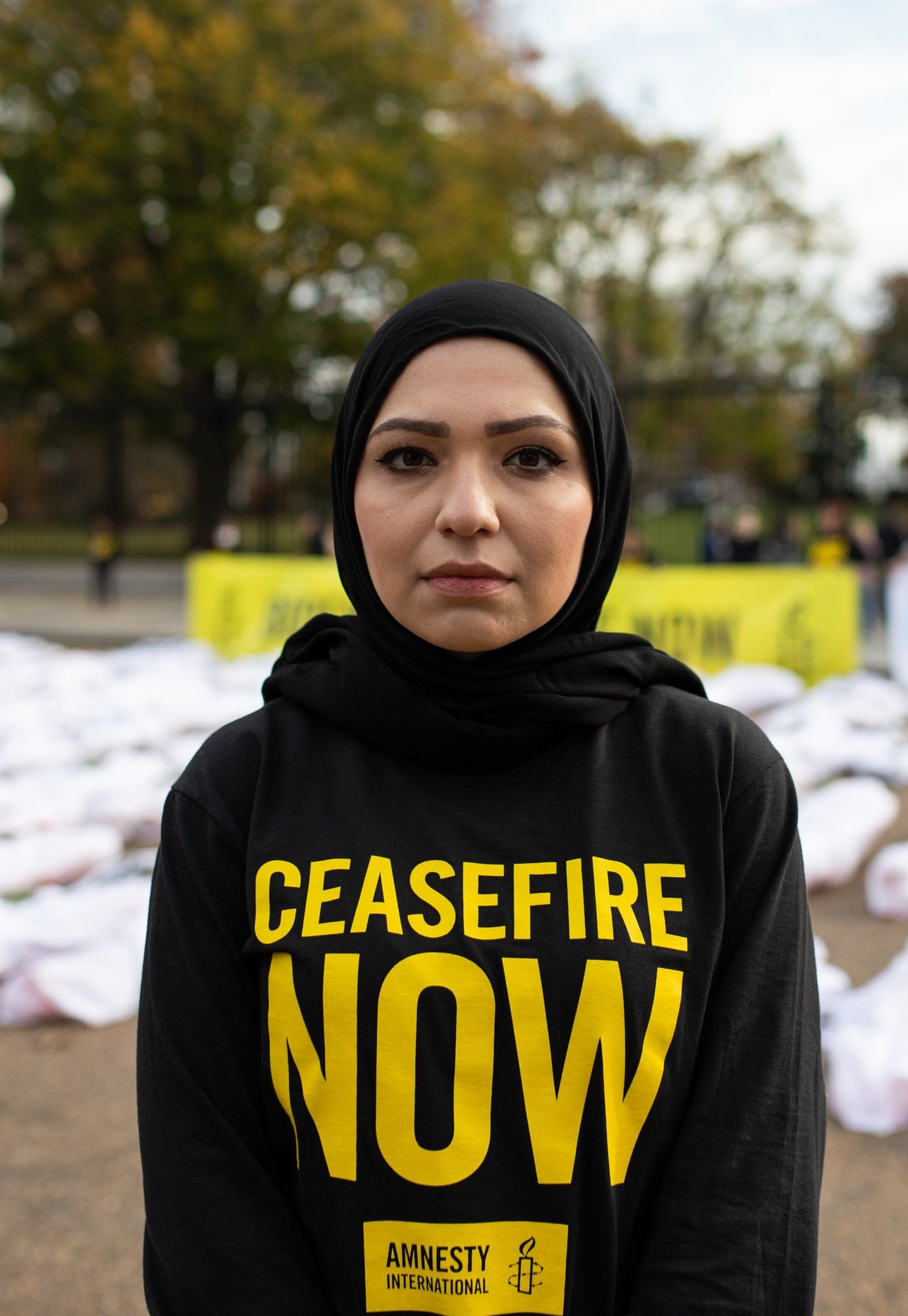
Ever since the latest violence erupted in Israel and the Occupied Palestinian Territories in October, Amnesty International has been doing what it does best: uniting as a community and using our human rights expertise to speak truth to power.
Together, we are supporting on-the-ground research and helping to document human rights violations. This is crucial for holding perpetrators accountable and seeking justice for all those who have been harmed.
Here is an overview of the work that Amnesty is doing, all thanks to your support.

Keeping you informed
From the first day of this latest conflict, Amnesty teams on the ground and around the world have been gathering evidence, verifying stories, and sharing information. Our human rights experts have been sending press releases, giving interviews, and raising awareness on social media to help ensure that grave human rights abuses cannot be ignored.
You can find updates on our website. If you don’t already, follow us on Instagram, TikTok, or X to keep up to date and help share the latest news.
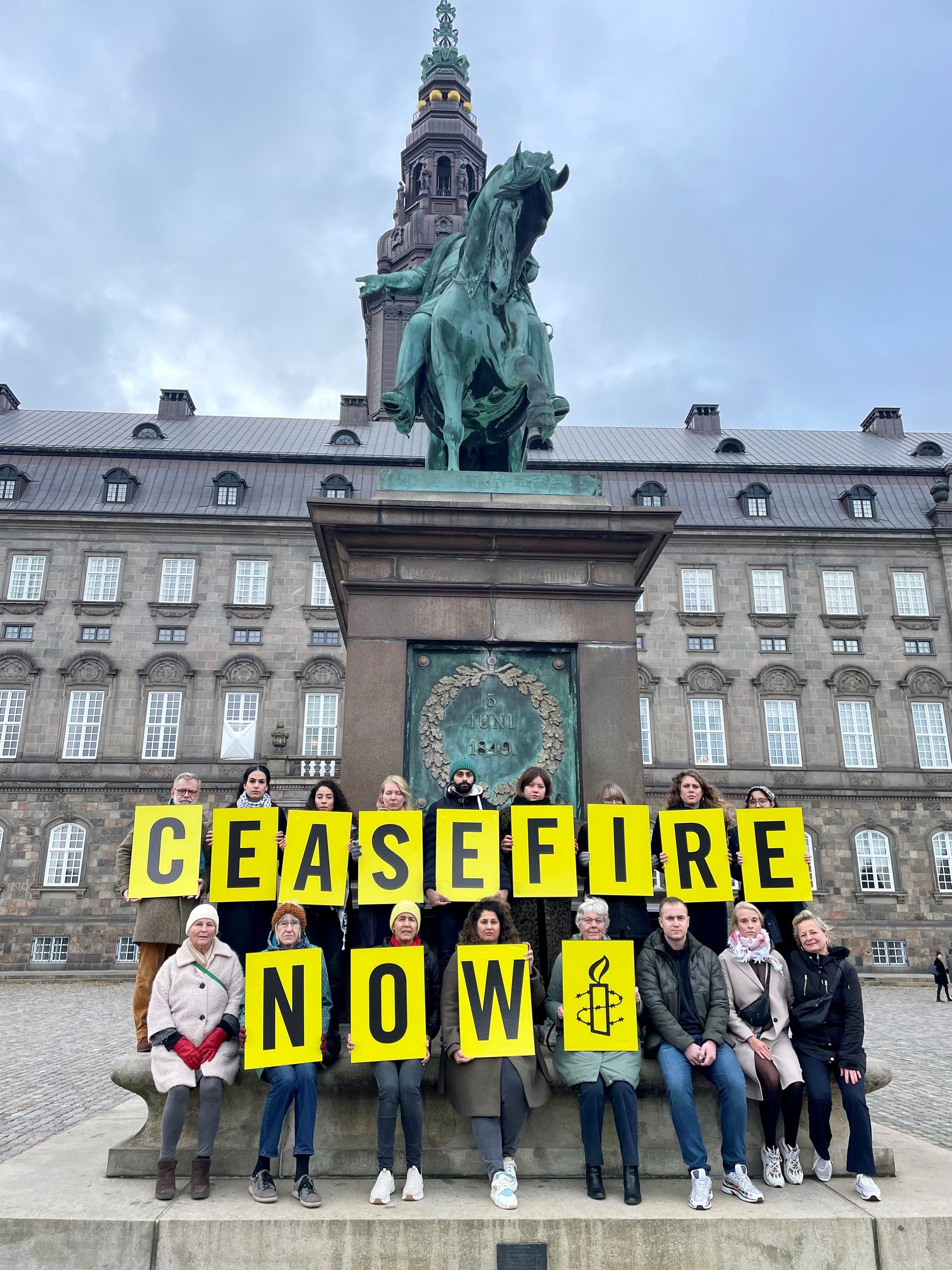
Uncovering human rights violations
Amnesty has been working with trusted fieldworkers on the ground in Israel and Gaza to gather eyewitness testimonies. Meanwhile, our Crisis Evidence Lab is working around the clock to verify evidence. This essential work is exposing those responsible for war crimes and is seeking accountability from all parties.
The Crisis Evidence Lab is a highly skilled team that uses cutting-edge investigation tools to document human rights violations. It helps to ensure that information emerging from conflict areas is timely and accurate.
Made up of investigators, engineers, and developers, the team uses geolocation data, photos and videos, satellite images, and eyewitness accounts. They digitally-verify evidence to cut through misinformation and determine what is really going on.
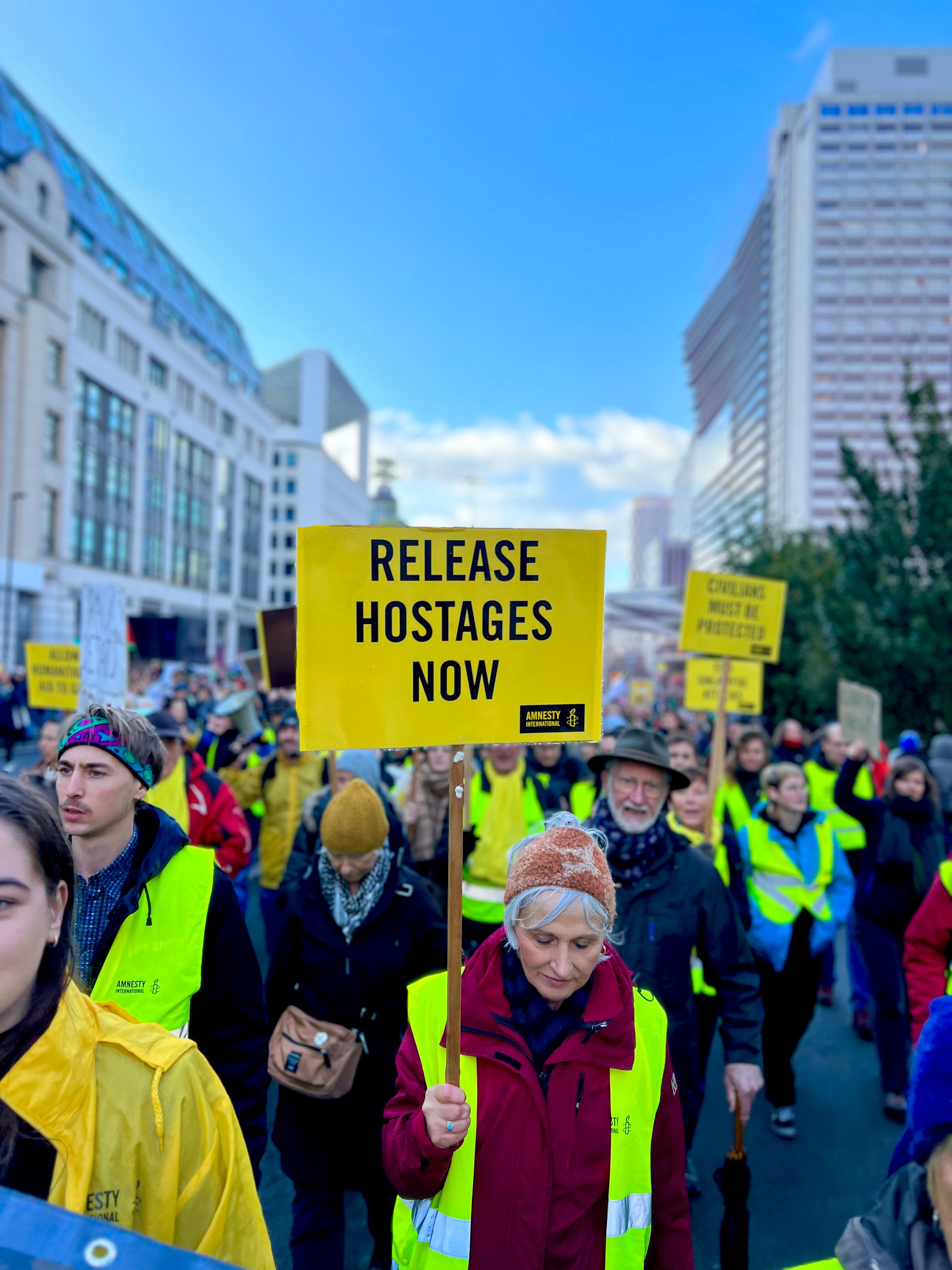
Video footage analysed by the Evidence Lab verified that members of Palestinian armed groups were deliberately shooting at Israeli civilians and taking civilians as hostages on the initial day of the attacks. The team has also exposed war crimes committed by Israeli forces in Gaza, including indiscriminate attacks on civilians or civilian objects, such as churches and refugee camps. Earlier this month, expert analysis by Amnesty teams revealed that US-made munitions have been used by the Israeli military in deadly, unlawful air strikes on homes full of civilians.
The Crisis Evidence Lab is an incredibly important arm of Amnesty International, which depends on the support of people like you. Our research holds those who break international humanitarian and human rights laws accountable, and it brings justice for those whose rights are violated.
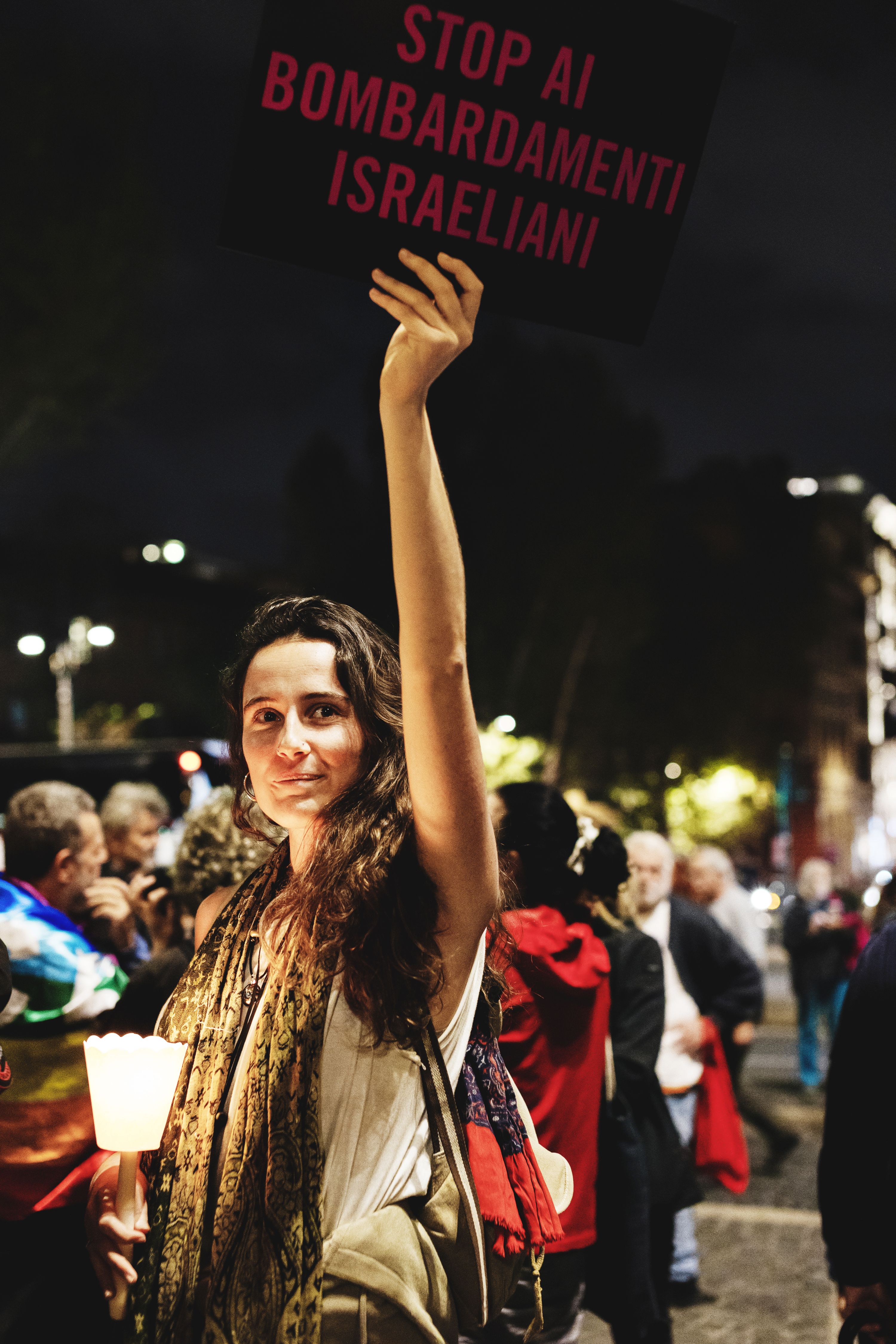
Ongoing research
Amnesty International has been monitoring the state of human rights in Israel and the Occupied Palestinian Territories for years. Our previous reports on human rights violations in the region are the foundation of our ongoing advocacy.
In 2022, Amnesty International published a landmark report. Our research documented how Israeli forces have conducted a widespread and systematic attack against the civilian population in Israel, Gaza and the West Bank, with the aim of maintaining a system of oppression and domination over Palestinians. This constitutes the crime against humanity of apartheid.
You can find out more about this research and the meaning of apartheid with a 90-minute course Deconstructing Israel's apartheid against Palestinians on the Amnesty Human Rights Academy.
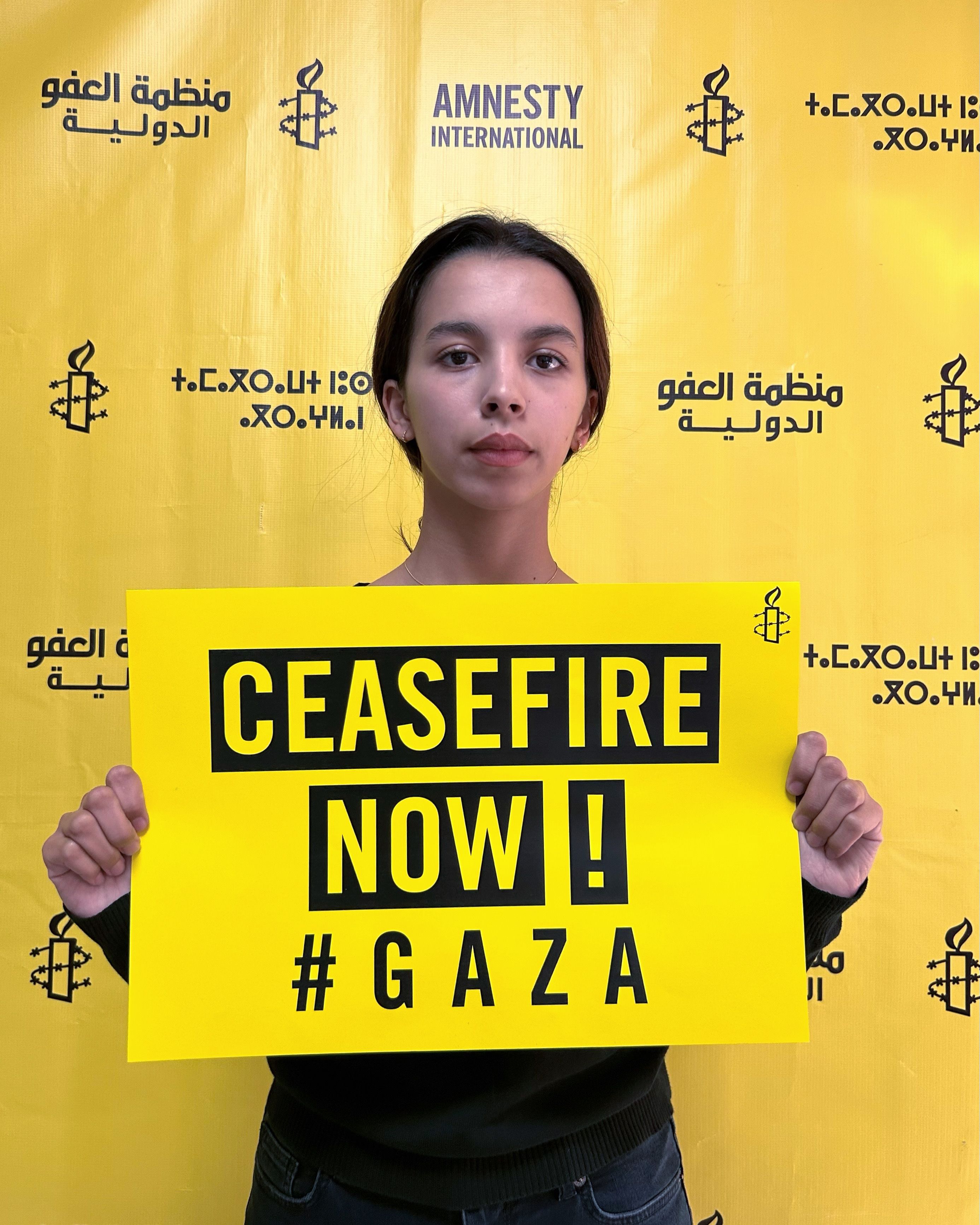
Earlier this year, Amnesty International published an investigation into the May 2023 offensive on the Gaza strip. This expert research found that Israel had unlawfully destroyed Palestinian homes, often without military necessity, which is a form of collective punishment against civilians.
With evidence still emerging of the latest human rights violations, Amnesty International will continue its investigations to determine the full range of crimes committed by all parties under international law.
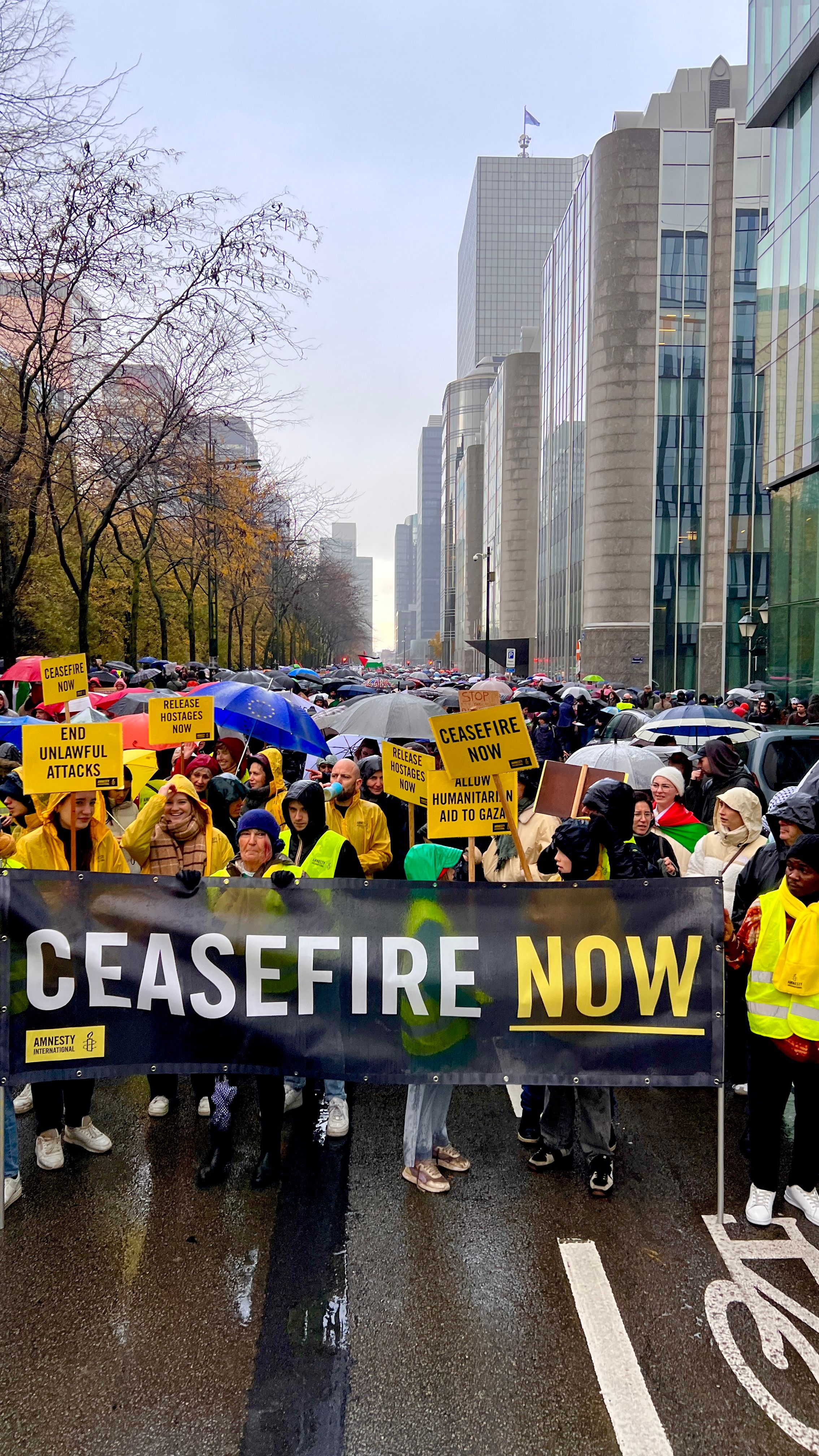
Calling for a ceasefire
As a community of over ten million people, Amnesty International has a loud and powerful voice. Here in Aotearoa New Zealand, thousands of people like you have signed our global ceasefire petition or used our tool to write to your MP, demanding that they join the call for a ceasefire too.
Amnesty teams have organised or attended vigils, signed and circulated our ceasefire petition, and amplified our calls through their activism and via social media. You can join that community of human rights defenders, the Amnesty Community, here.
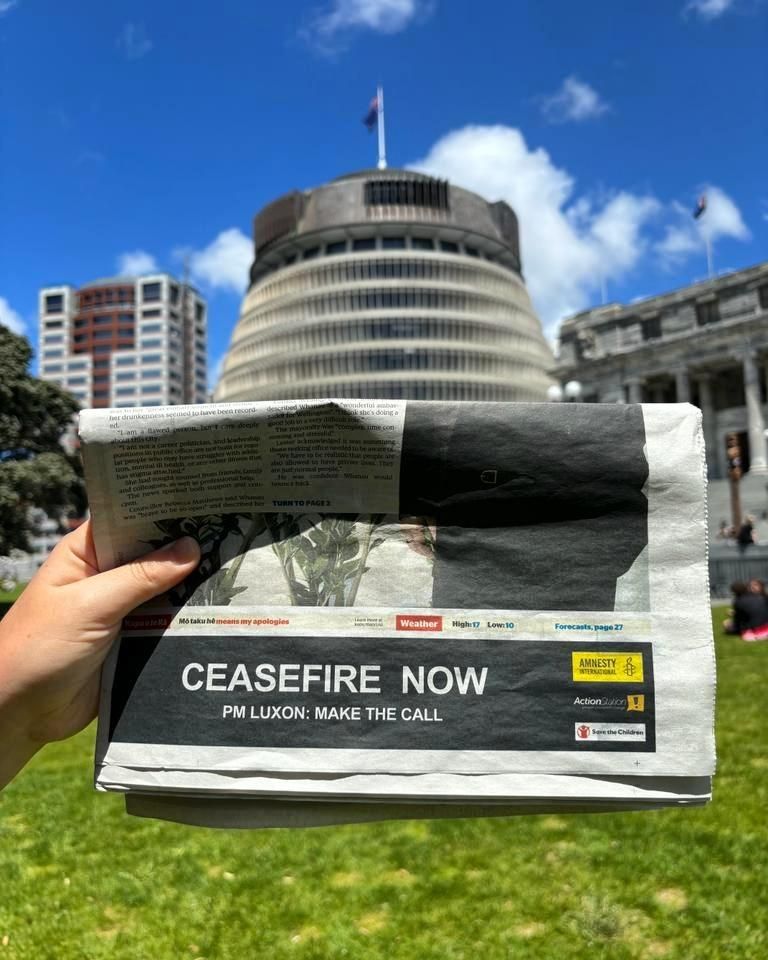
Last month, we worked with ActionStation and Save the Children to launch an open letter to the new Prime Minister, calling on him to support a sustained ceasefire. Our Policy and Advocacy team have briefed government officials about the human rights crisis, and we’ve placed adverts in one of Aotearoa New Zealand’s biggest newspapers to help build the pressure on our government.
Thanks to the groundswell of public outcry, the NZ Government has now indicated its support for a ceasefire. Around the world, people like you have been calling on their governments to protect human rights, and we’ve seen the impact this can have on world leaders. After weeks of grassroots campaigning, the UN General Assembly has passed a resolution demanding an “immediate humanitarian ceasefire”.
Now, our leaders must do all that they can to actually secure a sustained ceasefire and address the devastating human rights violations that are occurring.
Together, we are making a difference by showing those in power that we won’t take no for an answer. Together, we are making a difference by showing our compassion and concern for human rights.
If you are able, please donate now to help protect civilian lives and demand accountability for war crimes in Israel and Gaza. If you have already donated to the Gaza Crisis Appeal, thank you so much for your generosity.
